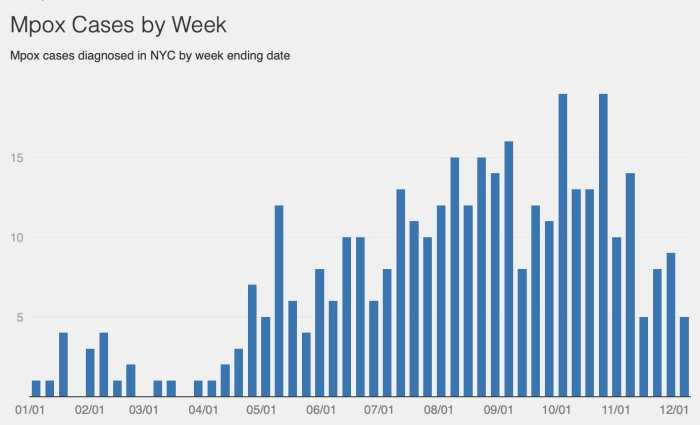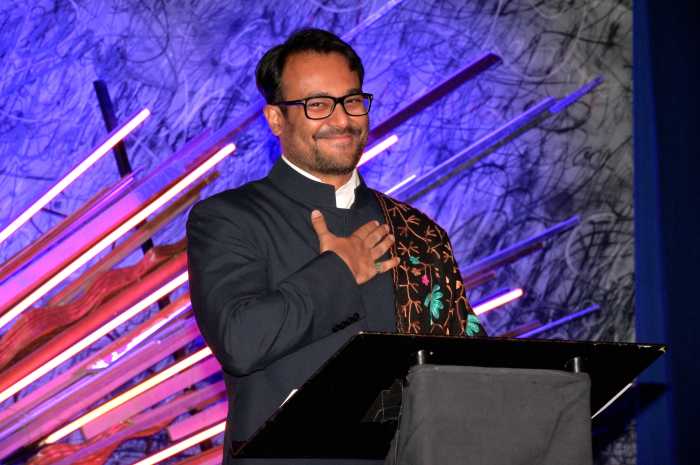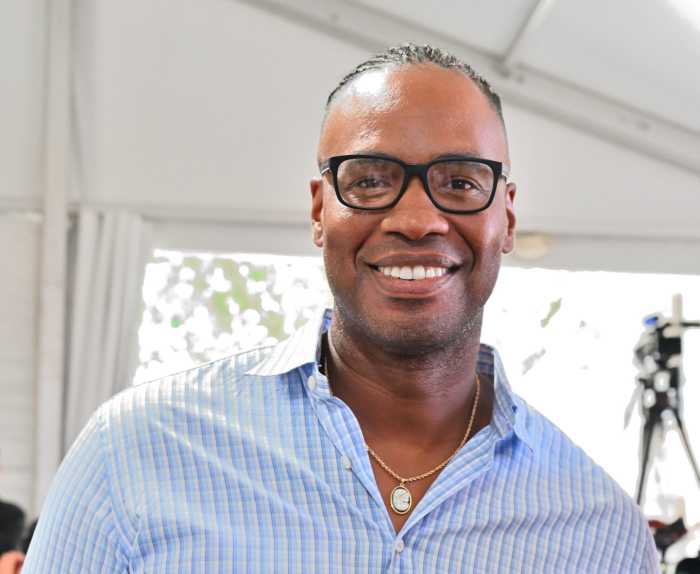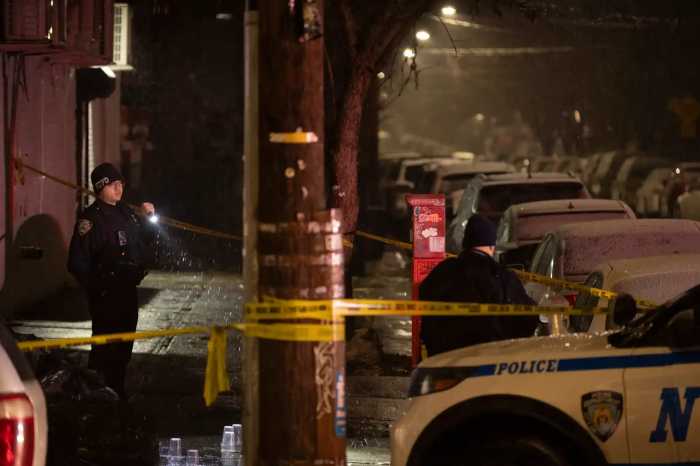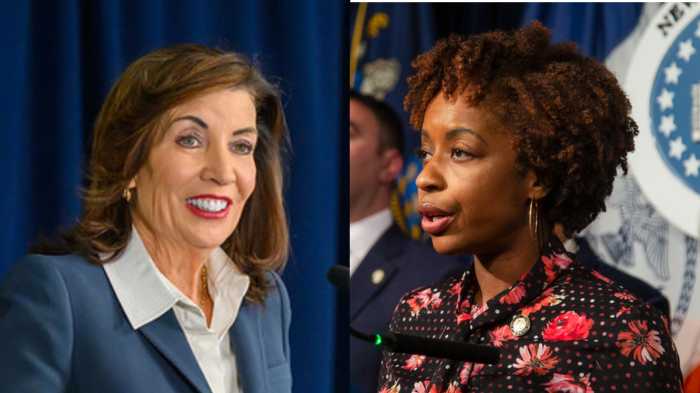BY ARTHUR S. LEONARD | The military’s Don’t Ask, Don’t Tell policy violates the First and Fifth Amendments of the Bill of Rights, ruled US District Judge Virginia A. Phillips in a carefully detailed opinion released on September 9.
Phillips, a judge from the Central District of California, ordered that the plaintiffs, the Log Cabin Republicans, submit a proposed judgment, including “a permanent injunction barring its enforcement,” to the court no later than September 16, and indicated that the government would then have seven days to submit any objections.
Press reports immediately noted the view of government lawyers that Phillips has no authority to order a nationwide injunction against the gay ban, but can only enjoin its enforcement in the Western states that comprise the US 9th Circuit.
US district court proposes injunction against enforcement
Log Cabin first filed the lawsuit in 2004, then re-filed two years later in response to concerns the government raised challenging its standing to bring the action. The group argued its standing is premised on its representation of two of its members – Alexander Nicholson, a former multi-lingual US Army interrogator discharged under Don't Ask, Don't Tell who is now executive director of Servicemembers United, an organization of gay and lesbian veterans, and “John Doe,” who is currently serving as a military officer and would be subject to discharge if he spoke openly about his sexual orientation.
The government strenuously argued against Log Cabin’s standing in such a representative capacity, but Phillips ruled in the group’s favor. Daniel Woods, an attorney at the firm of White & Case, represents the Log Cabin Republicans.
Don’t Ask, Don’t Tell, enacted by Congress and signed into law by President Bill Clinton in 1993, provides that any person who has a “propensity” to engage in “homosexual conduct” must be discharged from the military. “Homosexual conduct,” as defined in the law, includes not only sexual activity, but any expressive activity, including speech, that reveals a homosexual or bisexual orientation.
In approving the policy, Congress made a finding that allowing people known to be gay to serve in the military would undermine unit cohesion and morale, a conclusion based entirely on opinion testimony offered in House and Senate hearings, not on any empirical data.
The number of service members discharged for violating the new policy rose throughout the Clinton administration, from 616 in 1994 to 1,227 in 2001, according to Defense Department statistics. However, in the wake of 9/11, when the US began military action in Afghanistan, discharges declined substantially, even as overall military enlistment sharply increased. Discharges fell further after the invasion of Iraq in 2003, when the need for military personnel rose even more. In 2002, 885 were discharged under the policy; by 2008, the last year of George W. Bush’s administration, that number stood at 619.
In Barack Obama’s first year in office, discharges under Don’t Ask, Don’t Tell declined drastically — to 275 — according to figures submitted to the court in this case. The court found that in many instances the Pentagon did not take action against gay or lesbian personnel deployed in the Middle East until after their unit rotated out of combat assignments. Personnel known to be gay served overseas for substantial periods of time without any apparent adverse effect on unit cohesion or morale.
Legislation supported by Obama that passed the House of Representatives earlier this year and is pending in the Senate sets out a roadmap for the president and military leadership to bring the policy to an end, perhaps as early as next year, and as the Log Cabin challenge headed toward trial, the Justice Department moved to put the proceedings on hold as a result. Phillips, however, rejected this motion, noting that discharges were continuing and that the administration has declined to invoke emergency wartime powers to suspend them.
Citing precedent from a 2008 Ninth Circuit appeals ruling in a Don’t Ask, Don’t Tell challenge brought by Air Force Major Margaret Witt, Phillips ruled that the government’s justification would be held up to “heightened scrutiny,” since fundamental rights and freedom of speech were at stake.
Specifically, in answering the Fifth Amendment due process challenge, the government had the burden of demonstrating that the policy involves an important government interest and that the intrusion on individual rights “significantly furthers” that interest and is “necessary” in advancing it. The Pentagon had to show that the policy, as it relates to the First Amendment free speech rights of service members, was no broader than necessary to accomplish the government’s interest.
The Justice Department’s strategy in the trial held July 13-23 was to deny the relevance of any evidence about how the policy has actually worked, and to defend it solely based on the 1993 congressional findings recited in the statute, as well as on various reports to the defense secretary about military service by “homosexuals” generated from the 1950s through the early 1990s. The government presented no witnesses, only documentary evidence.
The plaintiffs presented testimony from several lesbian and gay service members discharged under the policy, a non-gay service member who is a vocal advocate of repeal as a result of his experience serving with a gay roommate, and a number of expert witnesses.
Phillips found that the government failed to meet its burden for justifying the policy. The government’s documentary evidence — especially the reports to the Pentagon – showed little support for the policy other than unsupported opinions about the possible impact of allowing gay people to serve openly. In other respects, the reports actually supported the idea of allowing open service.
By contrast, Phillips found that the plaintiffs’ evidence showed that the policy is detrimental to morale and unit cohesion, has an adverse impact on military readiness, and — although she did not say so directly — is not even rational, much less necessary to advance its stated purposes.
The opinion sets forth in lucid detail summaries of testimony by the former military members, each of whose experience directly contradicts the Congressional findings from 1993. As icing on the cake, Phillips quoted Obama’s public statements about the policy’s deleterious effect on military readiness.
Among Phillips’ factual findings –– spelled out in a level of specificity reminiscent of US District Judge Vaughn R. Walker’s recent ruling that struck down California’s Proposition 8 –– were that Don’t Ask, Don’t Tell contributes to troop shortages, requires the services to lower educational and physical fitness requirements to bridge the gap, and has led to the loss of critical skills in foreign languages, military intelligence, weapons development, and medical training. Meanwhile, the military’s stated concerns about privacy are already addressed by the modern configurations of housing quarters, and its claim that the policy is necessary for unit readiness and cohesion is belied by its willingness to delay discharge until after a soldier’s combat deployment is complete.
In view of these findings, Phillips concluded that Don’t Ask, Don’t Tell violates the substantive due process rights guaranteed by the Fifth Amendment.
In past cases involving First Amendment challenges to the policy, the government had always successfully argued that service members who revealed their sexual orientation were not being punished for speech but rather for what the speech reveals about their conduct. Phillips did not find this contention persuasive, noting that the earlier rulings on this point predated the 2003 Supreme Court ruling in the Lawrence v. Texas sodomy case.
There, the high court found that the due process rights at stake involved the “autonomy of self that includes freedom of thought, belief, expression, and certain intimate conduct.” Phillips concluded that a policy that distinguishes between speech revealing heterosexual orientation and speech revealing homosexual orientation, attaching adverse consequences only to the latter, is a content-based regulation of speech, which is presumed unconstitutional unless the government shows it is necessary to advance an important interest.
Given Phillips’ findings in her analysis of the due process claim, there was no way the government could satisfy the free speech standard. The judge found that the speech restriction is “far greater than necessary to protect” the military’s interests. In fact, given detailed testimony by the ex-military witnesses about how the policy affected their ability to speak freely with their colleagues and superior officers, it was clear that the policy actually adversely impacts morale and unit cohesion.
Forcing gay and lesbian personnel to lie about or conceal their personal lives from their colleagues had a detrimental effect on their relationships, undermining the trust necessary for unit cohesion. The policy also deterred service members from reporting homophobic speech that violated military regulations, for fear that such reporting would subject them to investigations. Phillips noted that there could be no clearer demonstration of how the policy interferes with the constitutionally-protected right of free association for political purposes than the fact that “John Doe” could only join the Log Cabin Republicans through subterfuge.
While acknowledging the deference that courts are instructed to give Congress and the president on military matters, Phillips pointed out that the Supreme Court has said that “deference does not mean abdication.” The plaintiffs deserved relief, she concluded, even under the traditional deferential standard.


